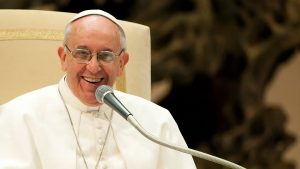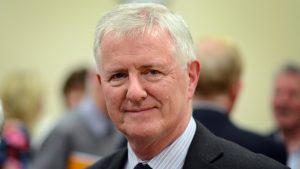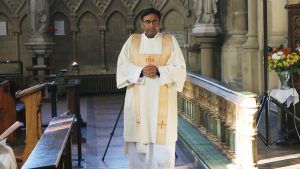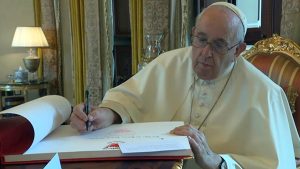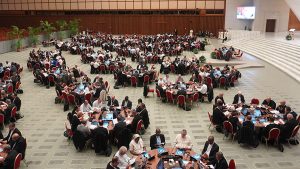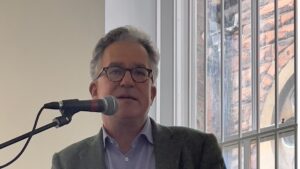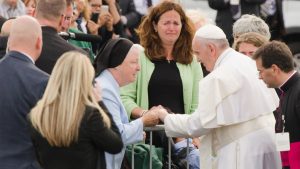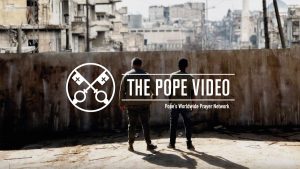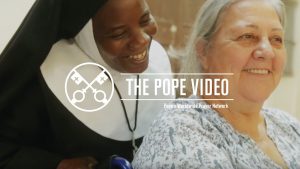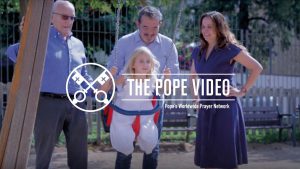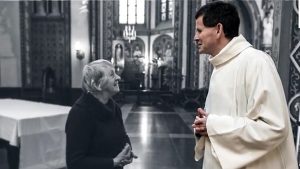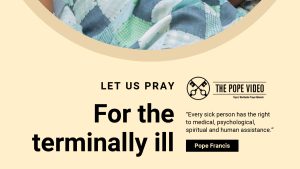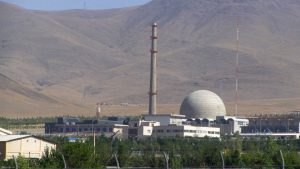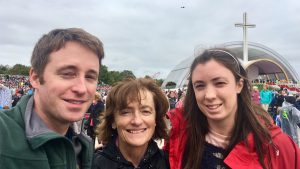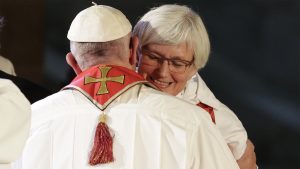‘Place the human person first’
In the April edition of The Pope Video, Pope Francis calls for the rejection of all economic systems that exclude people and only prioritise results and profitability. He emphasises the importance of putting the human person in first place, and the responsibility of business leaders and politicians in this regard. “Let us raise our voices together, asking that economists may have the courage to reject an economy of exclusion and know how to open new paths”, the Pope says.“The economy cannot attempt only to increase profits by reducing the workforce and thereby adding to the ranks of the excluded”, he explains.
In a message to the World Economic Forum Annual Meeting, that took place in Davos-Klosters, Switzerland in January 2018, Pope Francis remarked that “at the level of global governance, we are increasingly aware that there is a growing fragmentation between States and Institutions”. He explained how “even the most recent technologies are transforming economic models and the globalized world itself, which, conditioned by private interests and an ambition for profit at all costs, seem to favour further fragmentation and individualism, rather than to facilitate approaches that are more inclusive”.
Francis remarked that the recurring financial instabilities has resulted in new problems and challenges that governments must tackle. He highlighted challenges such as “the growth of unemployment, the increase in various forms of poverty, the widening of the socio-economic gap and new forms of slavery, often rooted in situations of conflict, migration and various social problems”.
Making reference to Evangelii Gaudium, the Pope’s Apostolic Exhortation on ‘The Joy of the Gospel’, Fr Frédéric Fornos SJ, international director of the Pope’s Worldwide Prayer Network, noted that “our society, invaded by consumerism and by the creation of artificial necessities, puts us to sleep, distracts us, and often often makes us forget the enormous challenges that we are experiencing in the face of an ‘economy of exclusion and inequality’”.
Fr Fornos SJ remarked that there are people behind the numbers and markets. “What kind of society do we want?”, he asks, highlighting the reference of Pope Francis in Evangelii Gaudium to how authentic faith “always entails a profound desire to change the world”.
Fr Frank Turner SJ, a British Jesuit, reflects on the Pope’s Prayer Intention for April for Living Prayer, a booklet produced by Messenger Publications containing reflections on the Pope’s monthly intentions. He remarks that “It is fatally easy to imagine economics simple the study of money or finance”. Indicating that prosperity is normally measured by growth and profit, regardless of who benefits and who is excluded, he outlines that “market economics rarely explores how growth could be achieved by raising the income of the poorest since higher wages might ‘threaten profits’.
Economics has a “relative autonomy, intrinsic standards of credibility and excellence”, he says. Highlighting how one of those standards is relevance, Fr Turner asks if economists throw light on human activities, purposes and values. He comments “For Christians these values are grounded in our sense of human life as a divinely created gift that we must honour responsibly and share generously”.
According to Fr Seán Healy SMA, Director of Social Justice Ireland “One of the major areas in which governments exercise their power is in making decisions about how the goods a country has are to be distributed”. Writing on the Pope’s Intention in the April issue of Sacred Heart Messenger, the publication of the Pope’s Worldwide Prayer Network (Apostleship of Prayer) in Ireland, he states that “a simple but effective way of checking if a government is making good decisions is to look at how the weakest in the society are treated”.
Fr Seán says that “a society should be measured by how it treats its most vulnerable people”. He argues that every budget should be inclusive of all groups especially the most vulnerable, and that they benefit from the decisions made. “Many people, including economists and policy makers, academics and community activists, have insights and skills that can contribute to this process but at the end of the day responsibility rests with government”, he says, explaining that “their ambition should be, as is stated in the Acts of the Apostles, that there is ‘nobody in need’”.
He outlines that although Ireland is one of the richest nations in the world the country has “a growing homelessness crisis”, with an increasing number of families waiting for social housing. While our population is growing, and people are living longer, “we have failed to provide a basic necessity – appropriate accommodation – to more than 100,000 households in the country”, he says. This, he explains “is as strong reason as could be provided for economists, and others like them, to have the courage to reject any economy of exclusion and know how to open new pathways to a fairer future”.


